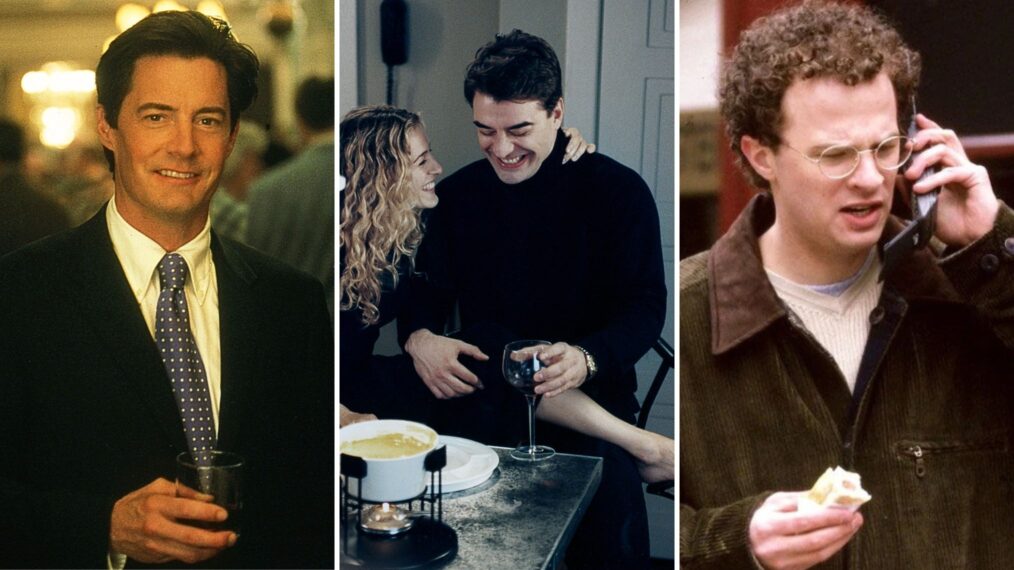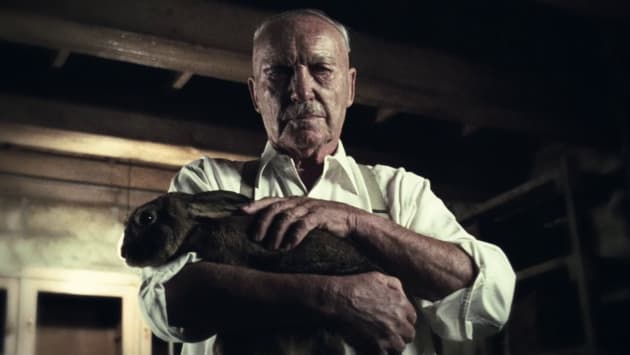Some movies can be so iconic that they accidentally end up damaging their own genre in the long run. For instance, we’re all aware of how cyberpunk has been living in the shadow of Ridley Scott’s Blade Runner since 1984, with it being nearly impossible to tell a story about a futuristic dystopia without bringing out the flying cars and neon signage. Fortunately, there are exceptions to this rule, and one of my personal favorites happens to be Kathryn Bigelow’s 1995 sci-fi thriller Strange Days.
A genre-bending murder mystery that takes place in the “distant” future of 1999, this special little film has aged spectacularly well despite its pre-millennial DNA, tackling pertinent issues like race relations and police corruption while also telling a surprisingly engaging love story. This is precisely why I think revisiting this retro-futuristic New Year’s extravaganza is the perfect way to start off 2024 with a bang.
While Strange Days is an unapologetic child of the 90s, the film actually began life as a joint project between James Cameron and his then-wife Kathryn Bigelow back in 1986, with the initial romance story eventually being influenced by real-world political events like the Lorena Bobbitt trial and the 1992 LA Riots. The project would then evolve into a cyberpunk parable influenced by sci-fi masters like William Gibson, with the film’s SQUID tech borrowing heavily from Neuromancer’s SimStims.
Settling on a title inspired by The Doors’ second studio album, Cameron ultimately produced, edited and co-wrote the film (alongside Jay Cocks), though Bigelow took up directorial duties as her ex-husband became involved with other iconic 90s projects.
In the finished film, Ralph Fiennes (who beat out iconic actors like Arnold Schwarzenegger and Andy Garcia for the lead role) plays Lenny, an ex-LAPD officer who now hustles illegal SQUID recordings – voyeuristic tech that allows users to experience someone else’s memories – and accidentally stumbles upon a conspiracy to cover up the murder of revolutionary rapper Jeriko One. With the help of bodyguard and limo driver Mace (Angela Bassett), Lenny investigates a futuristic version of late 90s LA that’s only one riot away from complete anarchy.
SO WHY IS IT WORTH WATCHING?
Raking in a mere $17 million on a $42 million budget, it’s pretty clear that audiences didn’t quite warm up to Bigelow’s bleak vision of the near future. As if that wasn’t enough, reviewers of the time criticized the film for its graphic story and excessive violence, claiming that it was a far cry from James Cameron’s other futuristic projects. And yet, nearly three decades later, I’d argue that all the elements that made Strange Days a flop in ‘95 are exactly what make it such an amazing experience today.
Diving into the philosophical ramifications of a world where experiences can be revisited ad infinitum in an eerily prescient view of a society where every moment is under constant scrutiny, it often feels like Strange Days says more about the 2020s than the late 90s. And this isn’t even mentioning Bigelow’s stylish direction, which elevates the material without resorting to the same tired tropes established by previous cyberpunk flicks.
I mean, the first-person SQUID sequences alone are worth the price of admission, with the director claiming that it took over a year of pre-production plus custom-made cameras to bring those scenes to life.
And you can’t discuss this movie without bringing up the incredible performances. Ralph Fiennes is having the time of his life playing a lovable bastard in one of the most nuanced roles of his career as he charms his way through one absurd situation after the other. Angela Bassett also stands out as an unexpected badass here, expertly playing into both her character’s softer side (due to her unrequited love for Lenny) as well as her lethal bodyguard training.
In fact, I’d argue that this is one of the most talented ensembles of the 90s, with Strange Days boasting excellent performances by everyone from The Crow’s Michael Wincott to Vincent D’Onofrio and even Juliette Lewis (who gifts us with a couple of show-stopping musical numbers).
AND WHAT MAKES IT HORROR ADJACENT?
While Strange Days ultimately ends on a much less horrific note than its cynical characters expect, very few films manage to set up such an effective and genuinely convincing apocalyptic atmosphere. From instances of police brutality to blink-and-you’ll-miss-it details in the background of seemingly normal scenes, nearly every frame of the movie is filled to the brim with dystopic energy.
And like critics have noted in the past, this also extends to the flick’s curiously un-cinematic violence, where our protagonists are realistically beaten and battered during fist-fights that feel more uncomfortable than fun. From constant double-crossing to spontaneous beat-downs, you really get the feeling that Lenny and his friends are always a single mistake away from death.
The murder mystery angle is also genuinely chilling, with these POV sequences borrowing a lot from John Carpenter as the killer has his way with his victims. However, things become even more horrific once it’s revealed that this homicidal maniac is actually jacking his SQUID unit into his victims as he toys with them, allowing them to experience their own rape and murder from his twisted point of view. While it’s still technically not a horror film, I can see why some 90s audiences were turned off by the flick’s uncomfortable levels of violence.
In some ways, Strange Days is even more relevant now as a thrilling view of what might have been than a futuristic romp about where society is headed next, and that’s why I think the film has amassed a sizable cult following as more and more people discover this hidden gem. It may have its flaws (like a slightly bloated runtime and a couple of action scenes that don’t fit in with the rest of the overly-serious experience), but I’m glad that this grounded piece of cyberpunk fiction is finally finding the audience that it deserves.
There’s no understating the importance of a balanced media diet, and since bloody and disgusting entertainment isn’t exclusive to the horror genre, we’ve come up with Horror Adjacent – a recurring column where we recommend non-horror movies that horror fans might enjoy.


























































![Mason Ramsey – Twang [Official Music Video] Mason Ramsey – Twang [Official Music Video]](https://i.ytimg.com/vi/xwe8F_AhLY0/maxresdefault.jpg)






















